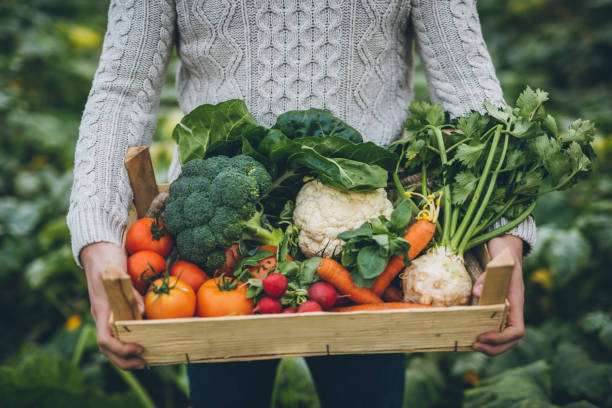Introduction
West Bengal Government Is Planning A Crackdown On Hoarding -In recent times, the hovering charges of veggies have emerged as a reason for difficulty for consumers in West Bengal. The growing call for and constrained supply have caused a surge in fees, impacting the not unusual man’s daily prices. To cope with this problem, the West Bengal government has taken the initiative to crack down on hoarding practices that make contributions to rate hikes. This article aims to explore the measures deliberate by way of the government to scale back hoarding and its capability impact on vegetable expenses within the nation.
Rising Vegetable Prices in West Bengal

Over the past few months, West Bengal has witnessed a widespread boom in vegetable prices. The growing charges have positioned a strain on family budgets and impacted the affordability of vital meals objects. Factors which include detrimental weather conditions, transportation challenges, and expanded call for have contributed to this surge. However, one predominant issue exacerbating the hassle is hoarding.
The Role of Hoarding in Price Surge
Hoarding refers back to the exercise of accumulating goods, in this example, veggies, in big quantities to create artificial shortage and pressure up charges. Hoarders take advantage of the state of affairs through stockpiling vital commodities and releasing them into the marketplace whilst fees skyrocket. This unethical exercise disrupts the demand-deliver dynamics and adversely influences both consumers and honest buyers.
West Bengal Government's Response
Realizing the impact of hoarding on vegetable costs, the West Bengal government has formulated a complete plan to address this issue head-on.
1. Setting up Task Forces
The government has installation committed undertaking forces comprising officials from numerous departments, inclusive of law enforcement, agriculture, and meals supply. These venture forces will work together to identify and take movement towards hoarders operating in specific elements of the state.
2. Strengthening Market Surveillance
To beautify marketplace surveillance, the authorities will deploy additional personnel to reveal the functioning of markets and perceive any suspicious activities. This proactive method ambitions to come across hoarding practices at an early level and prevent charge manipulation.
3. Enhanced Penalty for Offenders
The government plans to impose stricter penalties on those worried about hoarding. Offenders will face extreme felony effects, inclusive of hefty fines and imprisonment. This stern motion sends a sturdy message that hoarding will not be tolerated and acts as a deterrent for potential wrongdoers.
4. Promoting Direct Farmer-to-Consumer Channels
To pass intermediaries and decrease the scope for hoarding, the authorities are encouraging direct farmer-to-client channels. This method guarantees a truthful price for farmers at the same time as imparting clients with clean produce at reasonable quotes. Farmers’ markets, cooperative societies, and on-line platforms are being promoted to facilitate this direct connection.
The Impact of Crackdown on Hoarding in West Bengal
The measures taken via the West Bengal government to crack down on hoarding are expected to have several nice effects.
1. Stabilizing Vegetable Prices

By curtailing hoarding practices, the government aims to stabilize vegetable prices and prevent unexpected price hikes. This will bring alleviation to clients who’ve been stressed with the aid of the escalating costs of greens, making sure greater strong and low cost fees inside the marketplace.
2. Ensuring Adequate Supply
Cracking down on hoarding will discourage stockpiling and create an extra equitable distribution of vegetables. This method guarantees that the delivery chain stays uninterrupted, allowing a constant flow of important commodities to satisfy the call for. Adequate supply contributes to charge balance and reduces the possibilities of shortages.
3. Mitigating Inflationary Pressures
Hoarding can contribute to inflationary pressures within the economic system, because it artificially creates a scarcity of products. By getting rid of hoarding practices, the authorities can mitigate inflationary pressures and hold a positive economic environment for both consumers and businesses.
Public Response and Challenges Ahead
The authorities’s initiative to crack down on hoarding has garnered high quality responses from the public, who have been eagerly anticipating measures to address the growing vegetable costs. However, there are certain demanding situations that need to be conquered to obtain lengthy-time period achievement.
1. Public Support for Government Measures
Public attention and assistance are vital for the fulfilment of any initiative aimed toward curbing hoarding. The government needs to have interaction with the general public, teach them approximately the poor effects of hoarding, and encourage them to report any suspicious sports. Building a strong public-private partnership will help in effectively combating this problem.
2. Addressing Supply Chain Issues
Apart from hoarding, different elements along with transportation bottlenecks, garage facilities, and logistical challenges can affect the vegetable delivery chain. The authorities desire to deal with these problems comprehensively to ensure a clean drift of greens from farms to markets, thereby lowering fee fluctuations because of supply chain disruptions.
3. Balancing Consumer Affordability and Farmer Interests in West Bengal
While cracking down on hoarding is important to stabilize vegetable costs, it’s similarly crucial to strike a stability among patron affordability and the hobbies of farmers. The authorities must put in force guidelines that ensure truthful remuneration for farmers at the same time as keeping the expenses inside the reach of the common man.
Conclusion
The West Bengal authorities proactive technique to lessen hoarding practices inside the vegetable marketplace is a good sized step in the direction of stabilizing costs and making sure food protection for its citizens. By putting in place challenge forces, strengthening market surveillance, enforcing stricter consequences, and promoting direct farmer-to-client channels, the government aims to take away synthetic shortage and bring alleviation to customers. However, the success of these measures depends on public participation, green supply chain management, and a balanced approach that considers each client and farmer’s hobbies.
